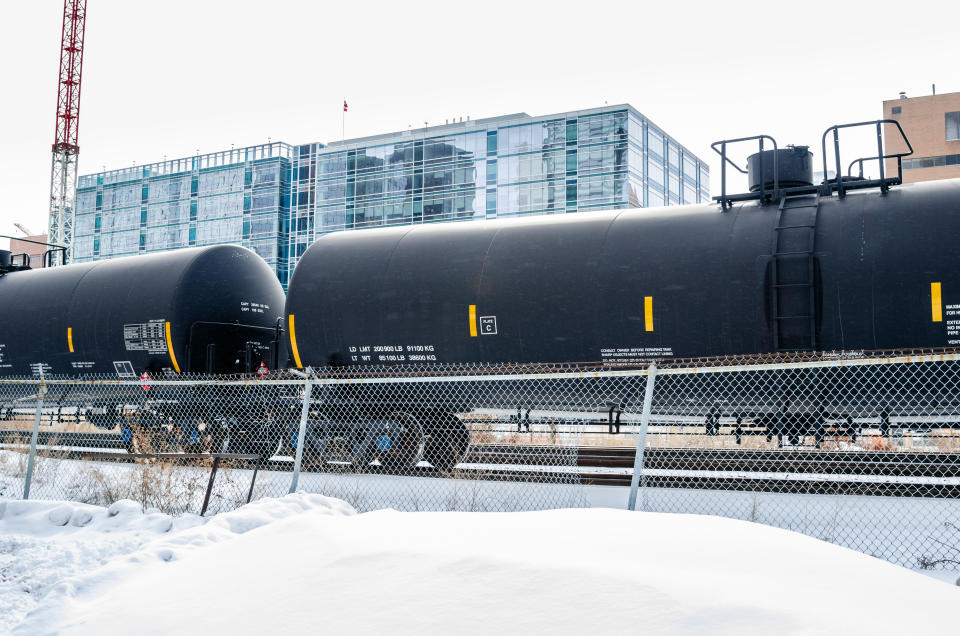Canadian oil lobby group slams ‘reprehensible’ Russia-Saudi price war

The Canadian Association of Petroleum Producers (CAPP) is denouncing Saudi Arabia and Russia for driving down the price of oil in a supply spat compounding the economic impact of the COVID-19 virus.
The unfolding global pandemic and expectations for a flood of cheap foreign crude this spring has caused Canadian producers to sideline more than a billion dollars in planned spending. The cautious optimism investors had for the sector at the start of 2020 has been shattered.
Goldman Sachs slashed its oil price forecast again on Thursday, predicting North American benchmark West Texas Intermediate (WTI) and European benchmark Brent crude will average US$20 per barrel in the second quarter of 2020. WTI continued to slide on Wednesday morning, falling nearly 11 per cent to US$24.00 per barrel at 9:48 a.m. ET.
London-based Capital Economics said on Wednesday that the slide will persist in the near-term “regardless of policy support” from governments. The United States has pledged to buy on the dip to fill its strategic reserves, and a response from Ottawa is expected shortly. Alberta’s government has said it will assemble an economic panel led by University of Calgary economist Jack Mintz to advise the province on a path out of what many observers see as uncharted territory for oil prices.
For CAPP president and CEO Tim McMillan, the drop in demand as business activity and travel slow to a crawl due to COVID-19 is an unfortunate reality the market must accept. He sees the price war between powerhouse producers Saudi Arabia and Russia differently.
“Maybe it shouldn’t be surprising that Saudi Arabia and Russia would use a time of global health crisis to chase market share, that regimes of this nature would use this global pandemic to bolster their position,” he told Yahoo Finance Canada. “Anyone that takes advantage of a global pandemic to explicitly chase market share is reprehensible.”
The March 5 meeting between OPEC nations and Russia in Vienna ground to a halt when Moscow refused to accept production cuts aimed at putting a floor under falling prices hit by COVID-19. Ridyah responded by slashing its selling price and announcing plans to massively increase the kingdom’s output.
The standoff has driven oil prices below the breakeven points for a number of producers around the world, including most in Canada. The result has been near-daily announcements from the country’s oil patch detailing cuts to spending and shareholder payouts.
Price Street managing director and market economist Rory Johnston said Saudi Arabia’s plan to drop selling prices for April deliveries and increase its production from 9.7 million barrels per day to 12.3 million marks a shift away from prioritizing stability over market share gains. However, he said it is important to note that it was Russia that scuttled the OPEC+ negotiations.
“[It’s] a move that fits more nicely within its longer-term strategy of geopolitical disruption,” he said of the Kremlin’s leadership.
Johnston said while a price war amid the COVID-19 outbreak exacerbates an already volatile oil market, the opportunity for Russia and Saudi Arabia to squeeze out rivals with a supply shock “might have proved too tempting to ignore.”
Asked how this current downturn differs from others that Canadian producers weathered in recent years, McMillan said this one will be particularly challenging because the energy sector has yet to fully find its footing after the last price route.
“We are in the middle of the response to the price shock right now, but it is going to take time to work itself out,” he said. “We're normally well-positioned to deal with it. That's part of being in a commodity business. But his one is coming with a health crisis that's lowering expected consumption for the first time in a decade.”

 Yahoo Finance
Yahoo Finance 